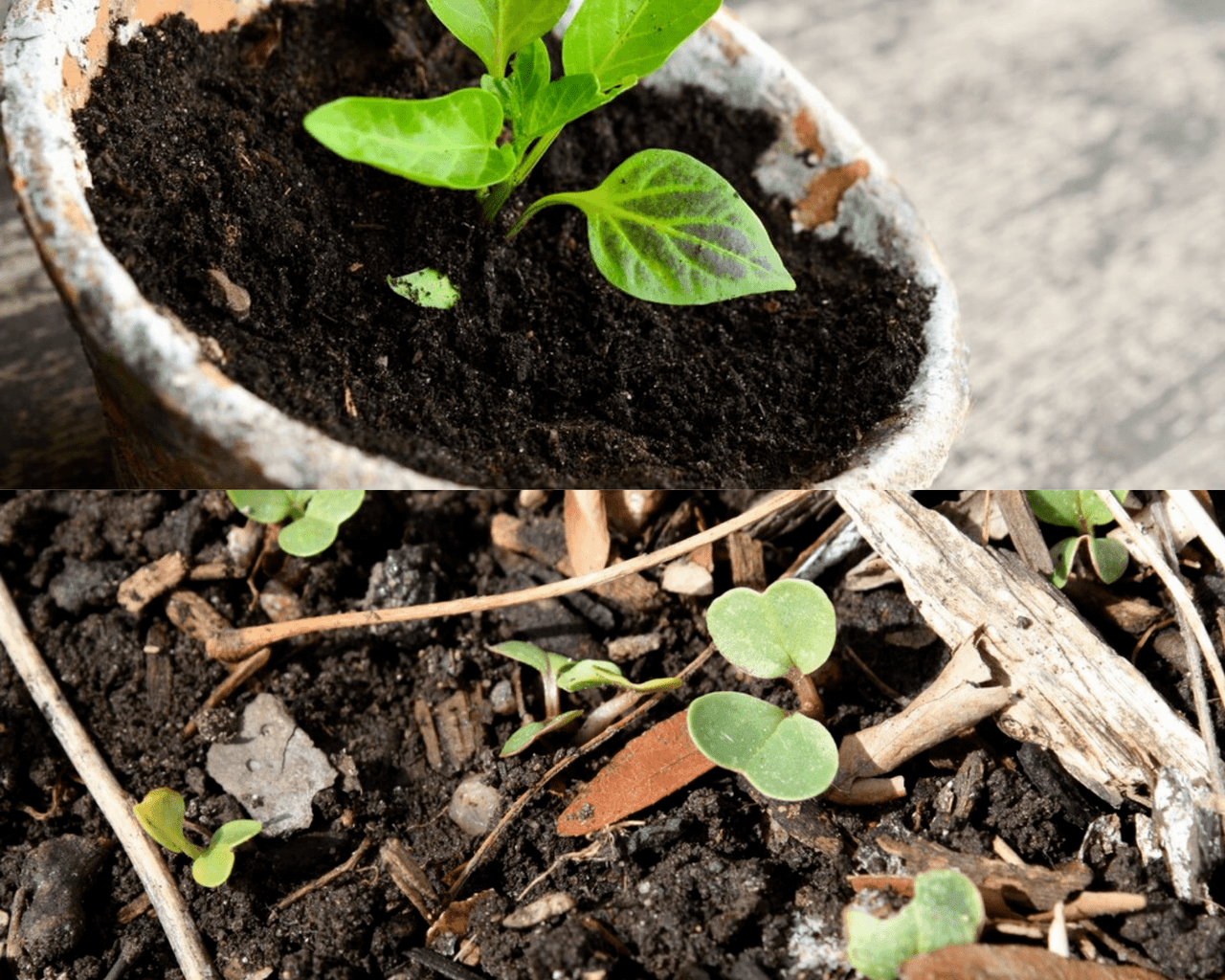What exactly is humus? It's the stable, already decomposed compost. What exactly is compost? It’s the decomposing organic material. For best results, we recommend combining the two, compost and humus. Moreover, you can use humus and compost for mulching.
Still, perplexed? An example will help to clarify: The decomposing organic materials in your newly created compost pile are what we refer to as “compost.”
Then after maybe 3-4 months, once all the organic materials break down, what you’ll be having is called “humus.”
For more clarity, let’s consider their structural differences; for example, compost has a relatively rough structure with clamped particles. The structure is caused by plant materials that have not yet decomposed completely.
Also, you can distinguish compost by its odor. It stinks, especially when the compost bin lacks aeration in the compost bin.
The component particles in humus are small, similar to those in ordinary garden soil. Humus also has a rich, dark brown color and no odor.
Table of Contents
Humus and Manure Are Not the Same as Compost
No, humus is not the same as manure or compost. We’ve seen that humus is the end product of fully decomposed compost. When the organic materials decompose, a dark brown product is formed, which is called humus.
To understand the difference between manure and compost, we must first consider the compost pile’s raw materials.
Compost is typically made by combining green materials (food waste, green leaves) with brown materials (mostly dead plants, such as wood chips).
On the other hand, manure is made by composting animal waste mixed with green and brown materials. So what makes manure unique from humus and compost is the addition of animal waste.
In terms of their benefits to the soil, humus, manure, and compost are good soil conditioners.
Which Is Better, Humus or Compost?
Both have unique and beneficial qualities to soil and plants, so it’s hard to say which is best.
Remember, humus is the byproduct of decomposing compost. They’re made from the same raw materials; their particle size is the only difference.
However, it’s best to list the advantages of each—this aids in determining what to go for depending on your garden needs.
Benefits of Compost
- Enhances water drainage. When rough, large-sized compost particles are mixed into soil, they form air pockets that improve water drainage. Additionally, compost in potting soil helps to prevent plant root rot.
- Improve soil biodiversity. Decomposing compost introduces microbes to your soil which aids in breaking down nutrients and minerals for plant absorption. Earthworms from vermicomposting also help in improving soil aeration.
- Increases soil nutrient levels. Compost contains green and brown materials high in essential nutrients required by plants for healthy growth. Among them are nitrogen, calcium, and phosphorus.
Benefits of Humus
- Improves water retention. Humus has a sponge-like appearance due to its small particle structure. Humus has a water holding capacity of about 80% of its weight.
- Balances the soil’s pH. The pH of your garden soil indicates how alkaline or acidic it is. Different pH levels influence how various plants absorb water and certain nutrients. Humus helps balancing the pH levels of your soil.
- Improve nutrient retention. Humus is made up of small organic particles that act as micronutrient anchors. They help to slow down the leaching process and give ample time for plants to absorb nutrients.
- Moderate the soil temperature. Humus helps to raise the temperature of the soil in your garden. The soil stays warm because the blackish color absorbs heat.
For best results, I recommend combining the two, compost and humus. Moreover, you can use humus and compost for mulching.
| Compost | Humus |
| Enhances water drainage | Good water retention |
| Adds beneficial microbes to soil | Balances soil’spH |
| Increases soil nutrient levels | Improves nutrient retention |
When to Use Humus and When to Use Compost
Humus is excellent for topping plants with tender stems and retaining moisture content during the dry season. In contrast, compost can be used to improve drainage in clay soils.
Again, there is no harm in using either throughout the entire plant growth process. It is unnecessary to purchase both products to grow your plants.
FAQs:
Can I Use Humus Instead of Compost?
Yes. There’s no harm in using either humus or compost in your garden.
Both have nearly identical inputs for your plants and soil. Both improve soil structure and add microorganisms to soil, nutrients, and minerals.
Is Humus a Topsoil?
No. Humus is the stable end product of mature and decomposed compost. Its particles are small-sized and have a dark brown color.
Conversely, topsoil is the upper soil layer that supports biodiversity. Also, organic matter concentration is high in this region.
Is Humus a Fertilizer?
Yes, humus is rich in nutrients and minerals and profitable for any vegetable garden.
Humus also helps to control soil pH, which significantly affects how plant roots absorb water and minerals.
Is Compost a Topsoil?
Compost is not topsoil. Compost is simply decomposed organic matter to give plants nutrients and boost their growth.
Is Compost a Fertilizer?
Yes. Similar to humus, compost contains vital nutrients and minerals such as nitrogen and phosphorus needed to boost plant development.

